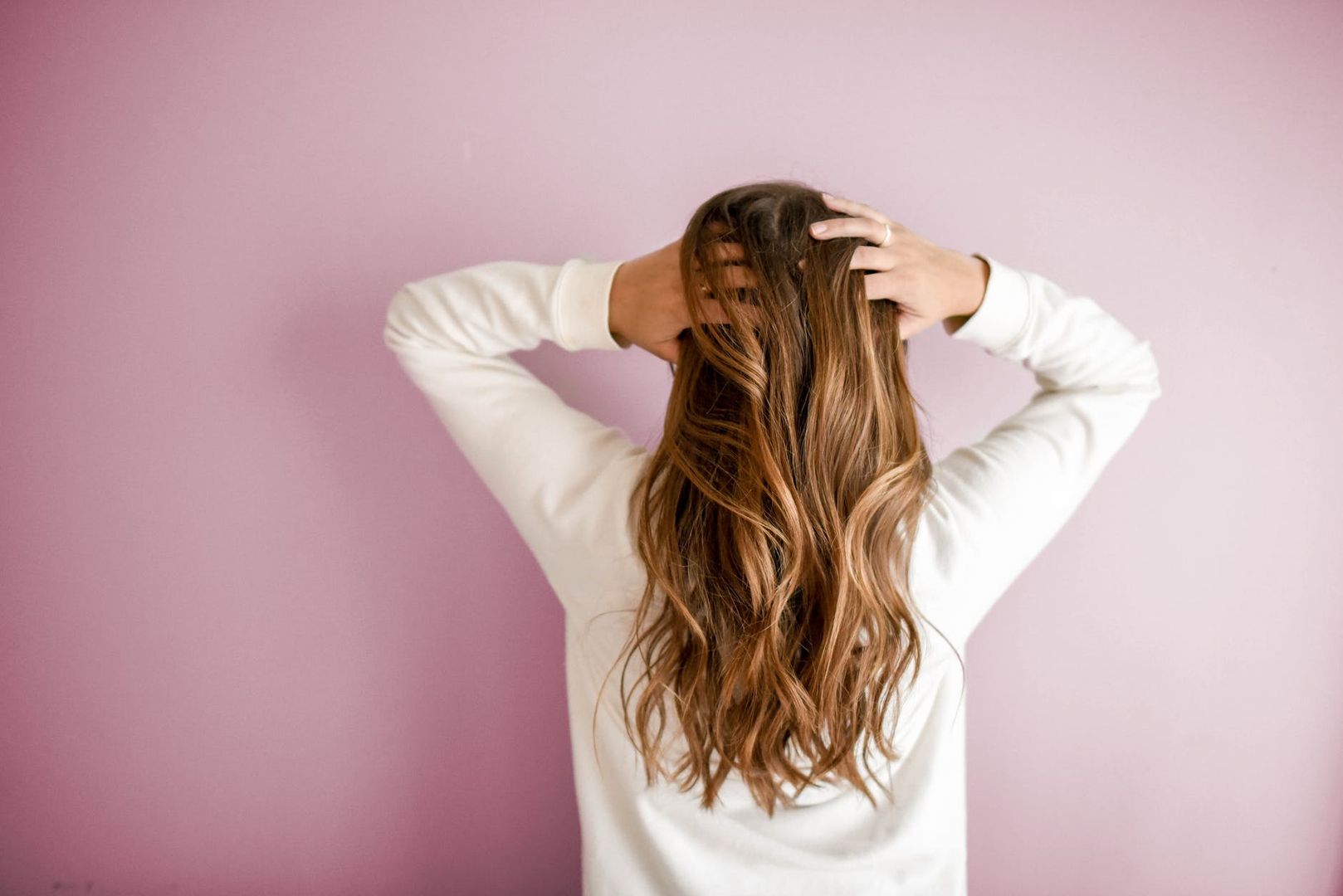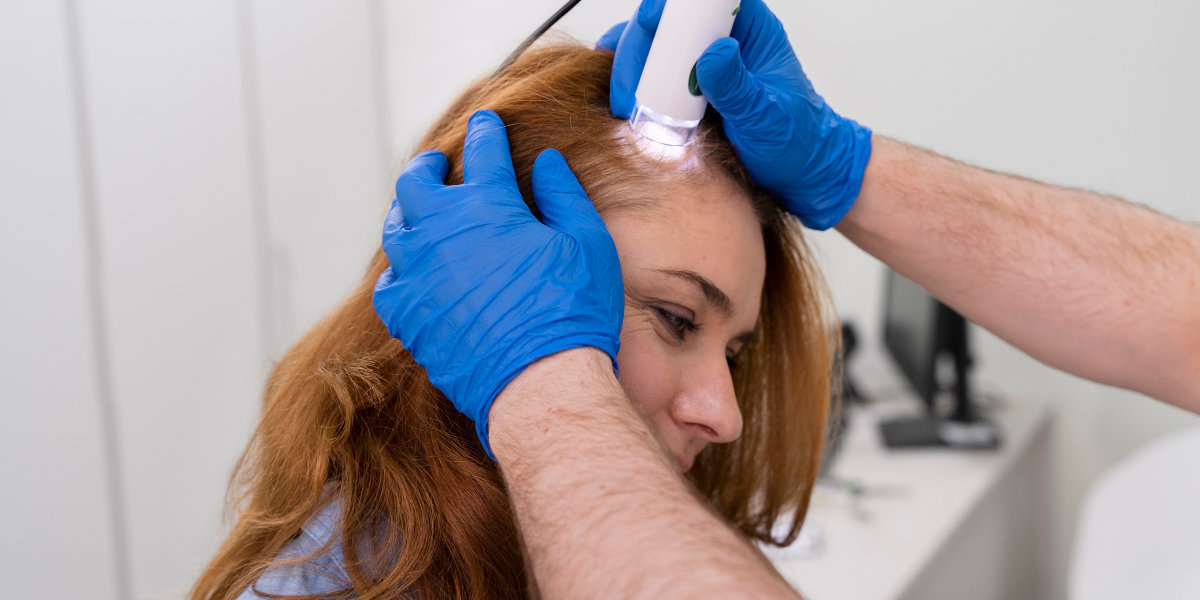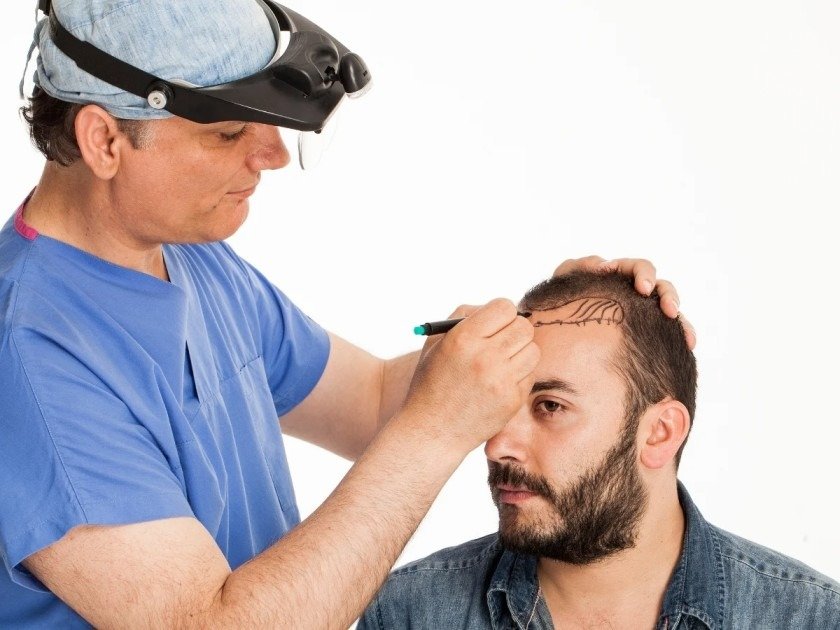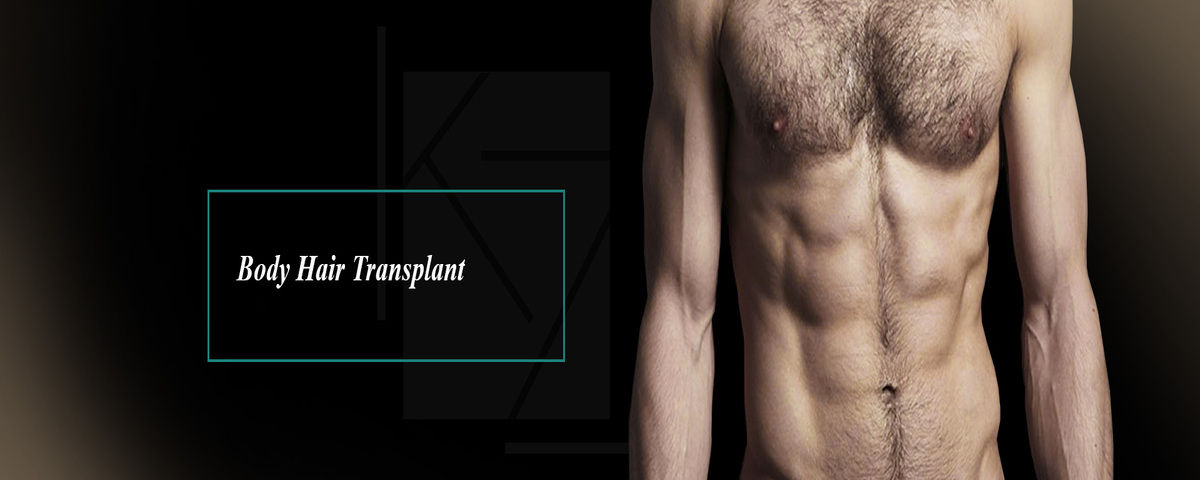Pre and Post-Operative Instructions for Hair Transplant
Have you been dealing with severe hair loss? Or have you noticed that your hair is thinning? Or do you have alopecia or other hair problems that cause you to lose your hair?
A hair transplant is the most effective and long-term treatment for these hair problems. A hair transplant can give you the appearance of a fuller head of hair in addition to restoring the texture, thickness, and general appearance of your hair.
If you want to restore your losing hair, visit Areeva Cosmetic Surgery Centre, one of the best hair clinic in Navi Mumbai. At Areeva, Dr. Audumbar Borgaonkar, a highly qualified and seasoned hair transplant surgeon, will provide you with the most desirable hair transplant in Navi Mumbai. Furthermore, Dr. Audumbar Borgaonkar is a broad-certified plastic and reconstructive surgeon specializing in FUE and Bio-FUE hair transplant techniques.
Areeva Hair Clinic offers the most affordable hair transplant cost in Navi Mumbai. To date, we have happily served over 2000 patients and have performed more than 1000 hair transplants. Hence, many people prefer us for advanced and cost-efficient hair transplantation in Vashi.
Now, let's know,
Who is a good candidate for hair transplantation?
For those between the ages of 21 and 60, a hair transplant treatment is ideal. The technique is tailored to the patient's needs, considering age, scalp condition, overall health, hair texture, density, etc.
If you have any of the following symptoms or conditions, you can consider hair transplantation:
- Men who have been diagnosed with male pattern baldness.
- Women who suffer from hair loss and thinning hair.
- People who have lost hair due to a scalp or burn injury.
- Individuals who have a different hair condition that is amenable to a hair transplantation procedure.
Furthermore, hair transplant surgery should only be considered if the following criteria are met:
- Patients have a stable donor area and sufficient donor hair, which will be enough for the transplant and the future.
- In addition to the recommended pre-hair transplant care, you must take measures following a hair transplant, just as you would after any other treatment.
Continue reading to learn more about the pre-and post-hair transplant care required.
First, let's know,
Instructions for Pre-Operative Care
It is critical to take proper pre-hair transplant care before undergoing hair transplantation. This will ensure that the transplant proceeds without a hitch and that the patient is comfortable throughout the process. The following hair transplant precautions must be taken ten days before the surgery:
- In addition to vitamins, notably Vitamin B and E, blood thinners, and herbal remedies, the patient should avoid taking aspirin, Advil, anti-inflammatory medicines, or painkillers, as well as steroids and cortisone creams, which might increase the risk of bleeding after surgery.
- During this time, drinking alcohol and smoking are also restricted.
- The patient must take enough sleep the night before surgery.
- Avoid using hair spray, gel, or other styling products.
- It is also crucial to take any prescribed medications.
- Also, before arriving at the clinic on the day of the procedure, the patient must take their prescribed medications.
The following are additional guidelines to follow on the day of the hair transplant:
- Wash your hair with a mild shampoo, eat a light meal, and avoid too much caffeine.
- Don't wear a wig, hair accessories, or hair styling products.
- Don't exercise, run, jog, or engage in any intense activity.
- The surgeon will begin the hair transplant by injecting an anesthetic into the areas of the patient's scalp where baldness and hair loss are present.
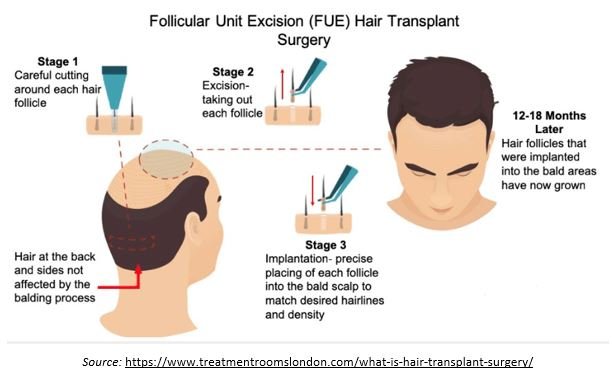
- The surgeon will take individual hair follicles from healthy scalp regions and transplant them into the bald spots in the Follicular Unit Extraction (FUE) hair transplant. This procedure is usually done in several sessions, each lasting two to four hours.
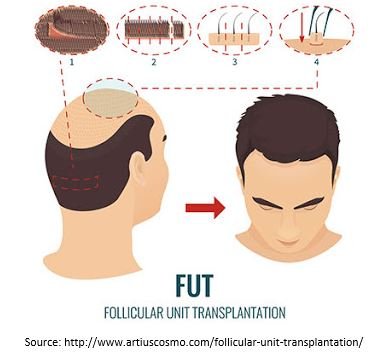
- On the other hand, Follicular Unit Transplantation (FUT) procedure involves the surgeon removing a few inches of skin graft from the donor area, cutting it into small portions, and extracting hair follicles from these sections. They will then implant these follicles into the recipient's tiny incisions. It will take 4 to 6 hours to complete.
Now, let's discuss,
Instructions for Post-Operative Care
- After hair transplant surgery, like with any other medical procedure, it is critical to take adequate care of yourself and take all necessary measures.
- For a few days after a hair transplant, you may most likely experience some soreness in the scalp. In most cases, the doctor will prescribe pain relievers, antibiotics, and anti-inflammatory medications. It's also crucial to avoid touching the recipient area and take the prescribed medicines for recovery.
- The patient must wear bandages for at least a day following the procedure and keep them on overnight to clean the incision line and surgical region. To avoid swelling, remove the bandage or head-wrap with scissors the day following the transplant.
- The post-hair transplant care comprises a wash and cleansing of the donor area two days following the procedure. On this day, the patient must clean the recipient and donor areas by pouring water over them several times. However, you mustn't use a towel to dry your hair.
- After the second day, the patient must use a mild, antibacterial shampoo and conditioner twice a day to cleanse the treated region. This is critical in hair transplant maintenance because it ensures that the scalp flakes and crust are eliminated, and infection is avoided.
The following are some additional crucial post-hair transplant care instructions:
- Avoid drinking, smoking, and painkillers for at least two weeks after the surgery.
- Do not exercise or indulge in any intense activity for at least two weeks following the procedure. Take the prescribed medications regularly.
- When it comes to sleeping following a hair transplant, you must also take measures. Keeping the head in an elevated position when sleeping is recommended to keep the transplant intact and safe. The patient can achieve this by placing numerous pillows or a towel beneath their head.
- Furthermore, use the shampoo, conditioner, and lotion advised by the doctor for at least two weeks after the transplant.
- In addition, for three weeks after the treatment, avoid exposure to heat and the sun. Swimming is also not regarded as safe during this time.
Hair transplantation has evolved significantly in recent years due to the advent of current procedures and technology. Other hair transplant methods have been established in addition to the standard FUE and FUT methods.
On the other hand, hair transplant care and instructions must be followed to achieve the desired results from the treatment. At Areeva, you will receive a comprehensive pre-and post-treatment consultation from Dr. Audumbar Borgaonkar, a highly qualified hai transplant specialist at the most competitive costs.
